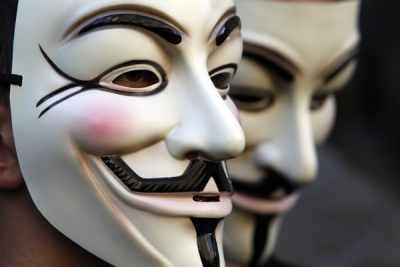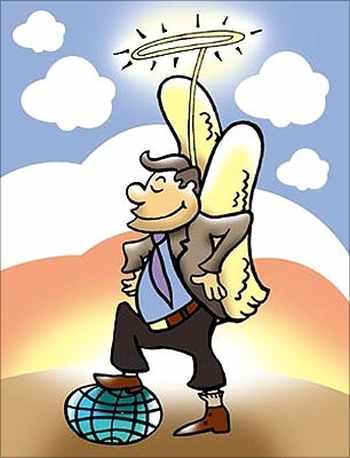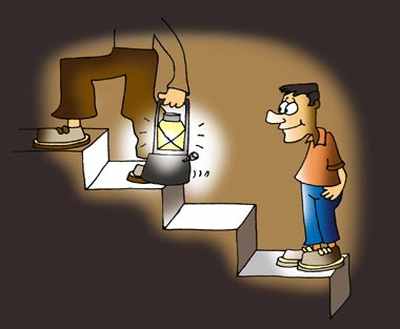Photographs: Stefano Rellandini/Reuters Vivek Kaul
Patrick Jake O'Rourke, an American political satirist and journalist recounts a very interesting story in his book Age and Guile – Beat Youth, Innocence and a Bad Haircut.
It was 1969 and O'Rourke had applied for a fellowship. To get the fellowship he had to clear an interview. In the interview he was asked "Which literary critic has had the most profound influence on your thinking?"
"I could not think of the name of a single literary critic," recalls O'Rourke in the book. But he had to say something, and he did.
...
When big brands hide behind a veil
Photographs: Reuters
"Henry David Thoreau," was his answer. Thoreau was an American poet, author and philosopher, and had got nothing to do with literary criticism in the conventional sense of the term.
"Henry David Thoreau wasn't a literary critic," the board interviewing him rightly pointed out. "His whole life was an act of literary criticism," retorted O'Rourke.
He got the scholarship. "Well, it was 1969. Bullshit was an intellectual mainstay of the era," he writes.
...
When big brands hide behind a veil
Image: Vijaya MallyaPhotographs: Reuters
Bullshitting or BS as it is more euphemistically referred to as is a very important part of corporate life as well. Sometimes it forms the crux of how chief executives/promoters communicate, and it is an even more important part of creating brands and selling products.
Take the case of Vijaya Mallya who sometime ago decided to close down Kingfisher Red. He explained it by saying that "We are doing away with Kingfisher Red, we do not want to compete in the low-cost segment. We cannot continue to fly and make losses, but we have to be judicious to give choice to our customers."
What he did not say, and in fact could not say is that a premium brand like Kingfisher operating a low cost airline, by buying Air Deccan and rebranding it as Kingfisher Red, was a big mistake in the first place.
This was pointed out by various analysts as well as aviation experts at the point of the time the decision was made.
...
When big brands hide behind a veil
Photographs: Lisi Niesner/Reuters
Another great example of CEOs BSing is when Chinese CEOs are asked about the connection of their company with the Chinese Communist Party (CCP).
Most Chinese companies have party committees operating and often superseding the decisions made by the professional board.
Richard McGregor in the book The Party gives the example of Zhang Ruimin who was both chief executive of Haier, a white goods company, and also secretary of the company's Communist Party committee, at the same time.
McGregor asked Ruimin how did he balance the conflict between the Party and company? Ruimin's reply which smelled of a lot of BSing was, "I appointed myself party secretary of Haier, so I can't have any conflicts with myself, can I?"
...
When big brands hide behind a veil
Photographs: Eddie Keogh/Reuters
So the moral of the story is that BSing helps CEOs often get out of tricky situations where the "real" answer is obvious, but they can't be seen mouthing it.
The other areas where companies have perfected BSing and made it into a fine art form is when it comes to branding and selling products.
Sheena Iyengar, in her book The Art of Choosing, recounts a rather interesting story about an episode of a television show Penn and Teller: Bullshit!
"Penn and Teller ran a blind taste test on the streets of New York City, they found that 75 per cent of the people preferred the taste of tap water to Evian," writes Iyengar. Evian is very expensive bottled water.
...
When big brands hide behind a veil
Photographs: Reuters
In the second part of their investigation an actor was hired and he presented a menu of very expensive bottled water with fancy names like Mount Fuji and L'eau du Robinet to unsuspecting diners. He also described these expensive bottled water brands as being "a natural diuretic and antitoxin."
As Iyengar points out "if diners decided to buy any of the water, he poured it into their glasses, then set the remaining of the bottle in an ice-filled wine bucket next to their table.
He also solicited their opinions about taste, and the diners agreed that their waters had been clearly superior to the tap water, describing them as "crisper" and "smoother". It turns out that all water is a natural diuretic and antitoxin. And L'eau du Robinet is French for tap water. What is interesting is that the fancy bottled water for this experiment was filled up from a faucet outside the restaurant.
...
When big brands hide behind a veil
Photographs: Reuters
The fancy name and the way the water was presented was the BSing which essentially helped people in believing that they were having something special, though they were having normal tap water.
A lot of the called up-market brands rely on this BSing to make their customers feel special and make them believe that they are being treated to something extra.
"When we say we prefer L'eau du Robinet...it could be a case of emperor's new clothes -- we don't want to appear to ourselves or others as having unsophisticated palates, or preferring a bottle of plonk to the good stuff," points out Iyengar.
...
When big brands hide behind a veil
Photographs: Rediff Archives
Another area when companies BS are when they try and create some mystery around the brand. Branding guru, Martin Lindstrom comes up with a very interesting example Buyology -- Truth and Lies about Why We Buy.
As he writes "When Unilever was getting ready to launch a shampoo in Asia, a mischievous employee with time on his hands wrote on the label, just for the hell of it, 'Contains the X9 Factor'.
This last minute addition went undetected by Unilever, and soon millions and millions of bottles of the shampoo were shipped to stores with those four words inscribed on the label.
...
When big brands hide behind a veil
It would have cost too much to recall all the shampoo bottles, so Unilever simply let it be. Six months later, when the shampoo had sold out, the company reprinted the label, this time leaving out the reference to the non-existent X9 Factor."
Once the company removed the phrase X9 from the shampoo label, there was trouble. "None of the customers had any idea of what the X9 Factor was, but were indignant that Unilever had dared to get rid of it.
In fact, many people claimed that their shampoo wasn't working anymore, and that their hair had lost its luster, all because the company had dropped the elusive X9 Factor," writes Lindstrom.
...
When big brands hide behind a veil
In this case the idea was not to BS consumers, but there are so many other examples where companies knowingly bullshits customers into believing that they are being offered something different and special.
As Lindstorm writes "Take the Sony Trintron TV, for example. What is Trintron? No idea. It's some technical mystery, which claims that the TV is better -- it sounds technical and fancy and seduces us to believe this is something very special."
When companies use phrases like "Ye PSPO nahi jaanta", "ZPTO yukt naya Clinic All Clear",or launch products like Opti-ThickTM Harpic, Ariel Oxyblue, Tata Xenon XT, and highlight these while advertising, at some level they are BSing the consumers.
...
When big brands hide behind a veil
Photographs: Ivan Alvarado/Reuters
But, these abbreviations are not a wish-wash. PSPO stands for peak speed performance output and is a technology that uses lesser electricity to deliver more air over a larger area.
ZPTO is a microbiocide, which is supposed to kill microbes that cause dandruff. But dandruff can happen for a lot of other reasons as well. The XT in Xenon XT stands for Cross Terrain.
The point is, do most consumers understand what these terms even mean? The answer in most cases, would be no. But do these terms matter to consumers when they make a purchase decision? Yes, they do! The moral of the story is: Bullshitting clearly works.
The writer can be reached at vivek.kaul@gmail.com












article